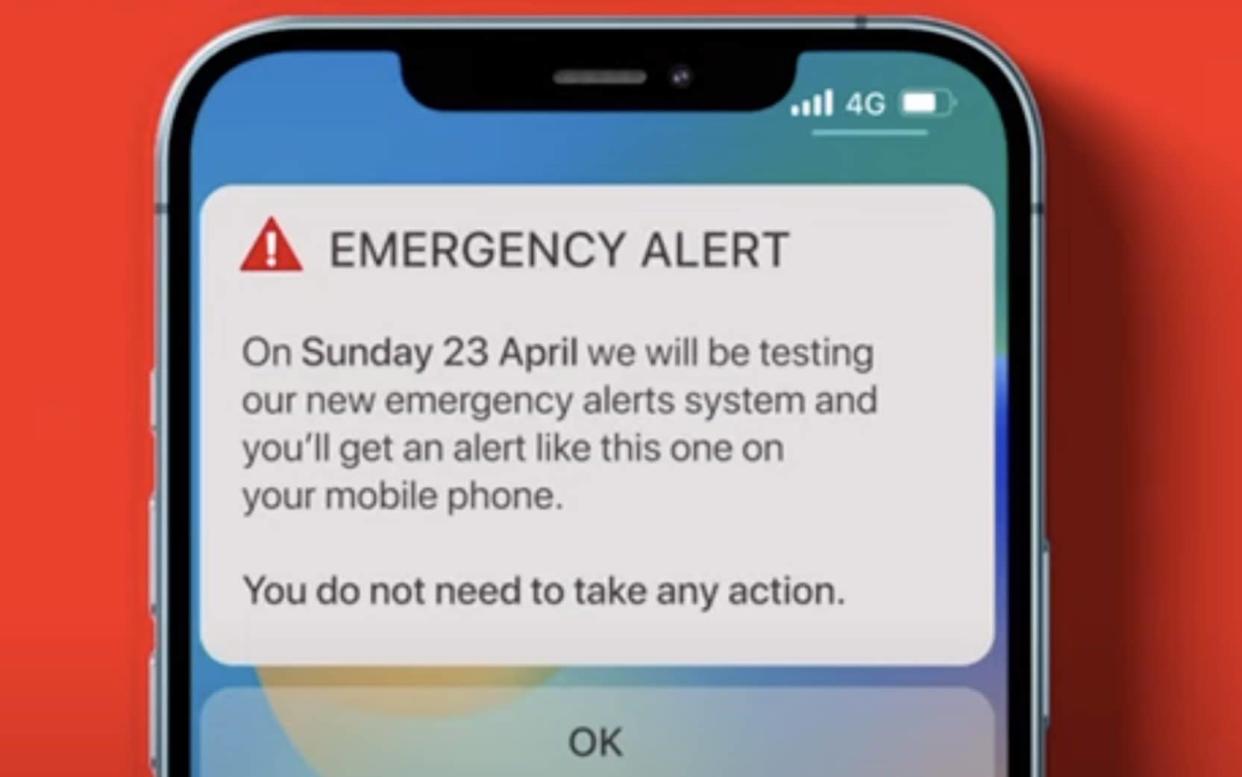Don't deactivate emergency phone alert, No 10 urges public amid Tory backlash

The public should not deactivate the new emergency alert system on their phones, Downing Street has urged amid a backlash from Conservative MPs.
Millions of mobile phones across Britain will emit a loud 10-second blast at 3pm on Sunday in a test of the new electronic warning, which is intended to notify the public of natural disasters or terrorist attacks.
Phone users who receive the accompanying text message will not be able to use their device until they acknowledge it, although those who do not wish to receive such alerts are able to manually opt out by changing their device settings.
Domestic violence and road safety charities have warned about the potential impacts of a sudden alarm going off, while older people are being urged to remain “on their guard” amid fears scammers could use it to target them.
'Potential to alert people to significant danger'
Asked about criticism of the alert, the Prime Minister’s official spokesman said: “This is about helping us protect the public from emergencies, such as flooding.
“It will give the Government and the emergency services the ability to send alerts to people's phones where this is a risk to life and people need to act.
“We have run an extensive five-week communications campaign and successful tests in East Suffolk and Reading where we didn't see any of those concerns. We would encourage people not to switch it off unless it is the right thing for them to do so.
“Obviously, people are free to make their own decisions about what's right for them, so we are not prescriptive. But we do think that this is a system that has the potential to alert people to significant danger. So of course we would encourage people to opt in.”
There was anger on Tuesday night over the decision to award Fujitsu a £5.7 million contract for the alert system despite its role in the postmaster IT scandal, which affected hundreds of employees and led to an inquiry.
Victims eventually received substantial payouts more than two decades after the original debacle.
Sir John Redwood, Margaret Thatcher’s head of policy unit at No 10, questioned the need for multi-million pound spending and suggested the alert system would not be needed as the public would be able to tell if there was an emergency.
'Strange and disappointing'
Lord Arbuthnot, the Conservative peer who led calls for the inquiry, told MailPlus the decision to work with Fujitsu again was “strange and disappointing”.
It came as Tory backbenchers criticised the new system, with Jacob Rees-Mogg, the former business secretary, saying he had disabled the alert because he did not want to be “shouted at by the Government”.
Mr Rees-Mogg told his GB News programme: “If something is building up to a great disaster, are we to assume that people are so stupid that they haven’t paid any attention to what’s been going on? And this seems to me to be a mistaken role for the state to be taking.
“It is back to the nanny state, warning us, telling us, mollycoddling us, when instead they should be letting people get on with their lives and make sensible decisions for themselves. And really it’s an extensive intrusion of the information that was used during Covid.”
'It may scare a few people'
A Whitehall source countered the criticism by noting that Mr Rees-Mogg had been a Cabinet Office minister at the time the policy was signed off.
Craig Mackinlay, the Tory MP for South Thanet, said he was “fairly ambivalent” towards the system and questioned why it was suddenly deemed necessary.
“It’s something we’ve managed to live and breathe without for all these years,” he said.
“It may scare a few people, I think particularly the elderly, wondering what all this is all about. I can’t see any imperative for it.”

 Yahoo News
Yahoo News 
